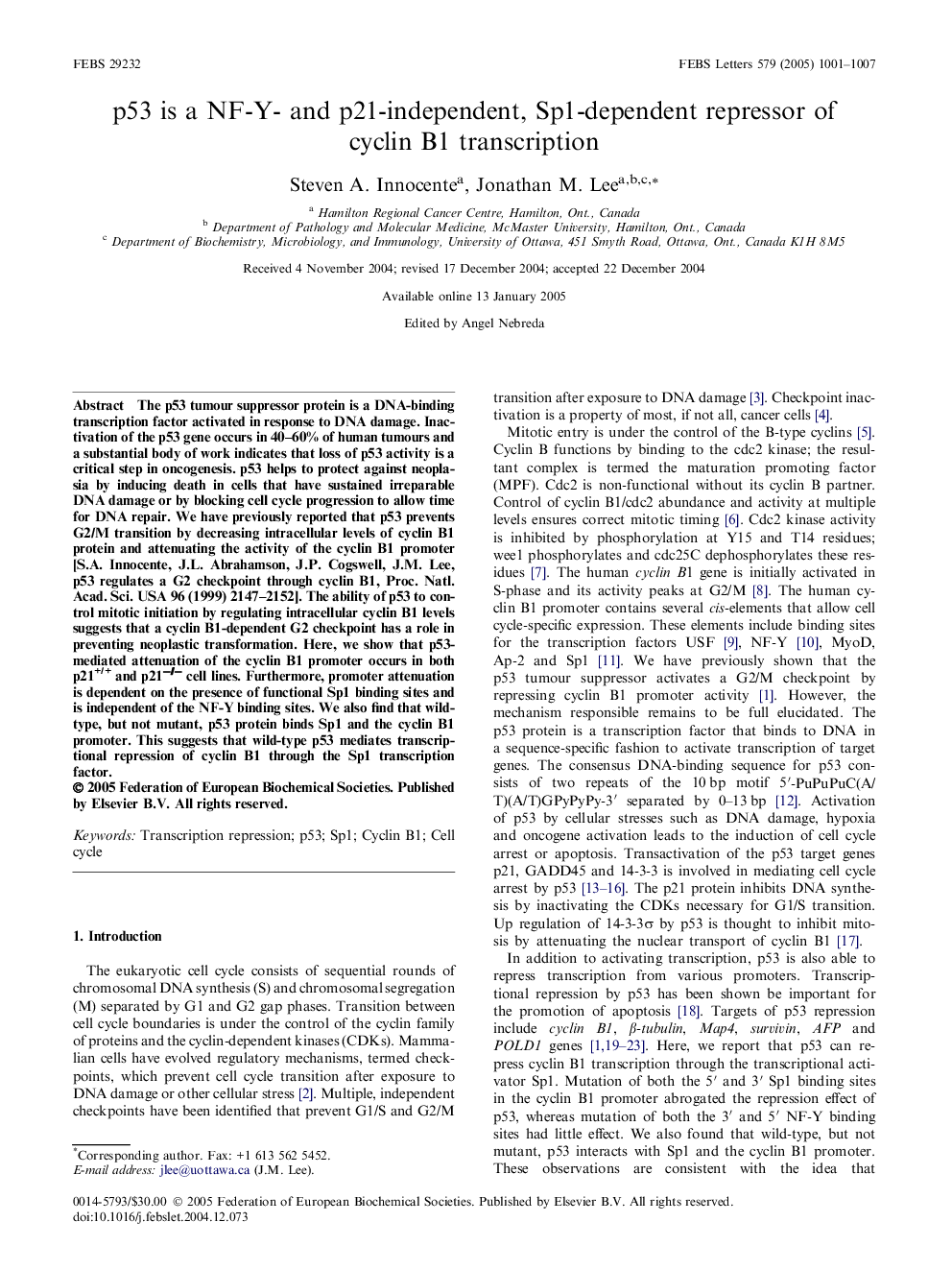| Article ID | Journal | Published Year | Pages | File Type |
|---|---|---|---|---|
| 10873610 | FEBS Letters | 2005 | 7 Pages |
Abstract
The p53 tumour suppressor protein is a DNA-binding transcription factor activated in response to DNA damage. Inactivation of the p53 gene occurs in 40-60% of human tumours and a substantial body of work indicates that loss of p53 activity is a critical step in oncogenesis. p53 helps to protect against neoplasia by inducing death in cells that have sustained irreparable DNA damage or by blocking cell cycle progression to allow time for DNA repair. We have previously reported that p53 prevents G2/M transition by decreasing intracellular levels of cyclin B1 protein and attenuating the activity of the cyclin B1 promoter [S.A. Innocente, J.L. Abrahamson, J.P. Cogswell, J.M. Lee, p53 regulates a G2 checkpoint through cyclin B1, Proc. Natl. Acad. Sci. USA 96 (1999) 2147-2152]. The ability of p53 to control mitotic initiation by regulating intracellular cyclin B1 levels suggests that a cyclin B1-dependent G2 checkpoint has a role in preventing neoplastic transformation. Here, we show that p53-mediated attenuation of the cyclin B1 promoter occurs in both p21+/+ and p21â/â cell lines. Furthermore, promoter attenuation is dependent on the presence of functional Sp1 binding sites and is independent of the NF-Y binding sites. We also find that wild-type, but not mutant, p53 protein binds Sp1 and the cyclin B1 promoter. This suggests that wild-type p53 mediates transcriptional repression of cyclin B1 through the Sp1 transcription factor.
Related Topics
Life Sciences
Agricultural and Biological Sciences
Plant Science
Authors
Steven A. Innocente, Jonathan M. Lee,
